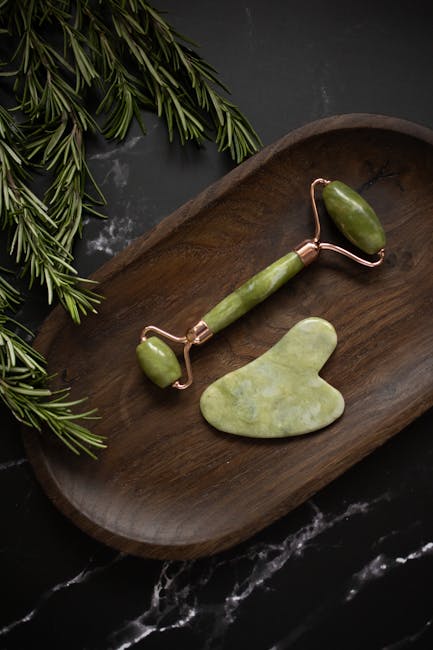Hey there! Have you ever stopped to think about how the health of your relationships can impact your overall well-being? It’s true! Nurturing healthy relationships is a vital part of self-care that often gets overlooked. Stick around, and I’ll share some insights on why taking care of your connections with others is just as important as your solo self-care routine.
Key Takeaways
- Understanding the role of self-care in enhancing personal and relationship well-being.
- Strategies for nurturing healthy partnerships and establishing strong communication.
- The importance of setting boundaries for mutual respect and balancing individual needs.
- Sharing self-care practices to strengthen relationships and create shared experiences.
- Recognizing the signs of a healthy relationship and strategies for maintaining them.
- The interplay between self-care and relationship stress, and how to support each other’s needs.
Understanding the Importance of Self-Care in Relationships
Defining Self-Care
Self-care is all about taking the time to do things that help you live well and improve both your physical and mental health. It’s like giving yourself a big ol’ hug and saying, “I got you.”
The Impact of Self-Care on Personal Well-being
When you practice self-care, you’re not just doing yourself a favor; you’re setting the stage for a happier, healthier you. This means you’re in a better place to contribute positively to your relationships. It’s like when your phone is fully charged – it works better and lasts longer, right?
The Role of Self-Care in Enhancing Relationships
Taking care of yourself isn’t selfish; it’s necessary. And when you’re feeling good, you’re more likely to spread that goodness to your relationships. It’s a win-win!

Nurturing Healthy Partnerships
The Influence of Romantic Relationships on Well-being
Positive Effects of Healthy Relationships
A healthy relationship can be a source of support, happiness, and growth. It’s like having a personal cheerleader who’s there through thick and thin.
Negative Consequences of Unhealthy Relationships
On the flip side, a rocky relationship can take a toll on your well-being. It can be draining and stressful, kind of like a leaky faucet that you just can’t seem to fix.
Strategies for Empowering Relationships
To keep your relationship empowering, focus on open communication, mutual respect, and plenty of trust. It’s like building a bridge – it takes time and effort, but man, the view is worth it!
Recognizing and Utilizing Opportunities for Strengthening Partnerships
Keep an eye out for chances to grow closer, whether it’s trying something new together or simply having a heartfelt chat. These moments can fortify your bond like nothing else.

Establishing and Maintaining Healthy Boundaries
The Concept of Boundaries in Relationships
Boundaries are the lines we draw to protect our well-being in relationships. Think of them as your personal property line – they help others know where your yard ends and theirs begins.
Building Strong Boundaries for Mutual Respect
When you set clear boundaries, you’re saying, “Hey, I respect myself and I respect you.” It’s a crucial step in maintaining a healthy relationship.
Balancing Individual Needs with Relationship Goals
It’s all about finding that sweet spot where your needs and the needs of your relationship are both being met. It’s like a dance – sometimes you lead, sometimes you follow.

The Art of Communication in Nurturing Relationships
Principles of Effective Communication
Active Listening
Active listening is all about being fully present when your partner is talking. It’s not just about hearing the words, but really getting the message.
Clear Expression of Needs and Feelings
Being clear about what you need and how you feel is like giving your partner a roadmap to your heart. It makes the journey smoother for both of you.
Constructive Feedback
Offering feedback that’s constructive rather than critical can help your partner understand where you’re coming from without feeling attacked. It’s like helping them adjust their sails in the right direction.
Communication as a Tool for Relationship Growth
Good communication can help your relationship grow stronger and deeper. It’s like watering a plant – it needs it to thrive.
Trust and Open Communication as Foundations of Strong Relationships
Trust and open communication are the bedrock of any strong relationship. Without them, it’s like building a house on sand – eventually, things might start to crumble.

Cultivating Self-Care Rituals Together
Sharing Self-Care Practices for Relationship Building
When you share self-care practices with your partner, you’re not just taking care of yourselves – you’re taking care of your relationship too. It’s like teaming up to make sure your ‘us’ is as strong as your ‘me’.
Creating Shared Experiences Through Self-Care
Doing self-care activities together can create special memories and strengthen your bond. It’s like adding pages to your relationship scrapbook.
Supporting Each Other’s Self-Care Efforts
Encouraging your partner in their self-care journey shows that you care about their well-being as much as your own. It’s a beautiful way to show love and support.

Embracing Flexibility and Adaptability in Relationships
The Dynamic Nature of Relationships
Relationships are always changing, just like the seasons. Being flexible and adaptable means you’re ready to roll with the punches and enjoy the ride, no matter where it takes you.
Adapting to Growth and Change Within Partnerships
As you both grow and change, so will your relationship. Embracing this can lead to a deeper, more fulfilling connection.
The Importance of Flexibility in Meeting Relationship Challenges
Being flexible can help you tackle challenges head-on, together. It’s like being a team of superheroes – each with your own strengths, ready to face whatever comes your way.
Recognizing the Signs of a Healthy Relationship
Mutual Respect as a Key Indicator
Mutual respect is a clear sign that you’re in a healthy relationship. It’s like the green light on a traffic signal, telling you to go ahead because things are good.
Trust and Open Communication as Hallmarks
Trust and open communication are the hallmarks of a solid partnership. They’re like the foundation of a house – without them, the whole structure is shaky.
The Significance of Emotional Support and Understanding
Having emotional support and understanding in a relationship is huge. It’s like having a safety net that catches you when you fall.

Strategies for Maintaining Healthy Relationships
Continuous Effort and Appreciation
Just like a garden, relationships need regular tending. Show appreciation for your partner, and put in the effort to keep things blooming.
Finding Solutions that Benefit Both Partners
When issues arise, look for solutions that work for both of you. It’s like solving a puzzle together – it takes teamwork and patience.
Prioritizing the Relationship in Daily Life
Make your relationship a priority in your daily life. It’s like putting your most valuable treasure in a safe – you protect it because it means the world to you.
The Interplay Between Self-Care and Relationship Stress
Honoring Personal Boundaries to Reduce Stress
Honoring your personal boundaries can help keep relationship stress at bay. It’s like setting up a do-not-disturb sign when you need some quiet time.
The Role of Self-Care in Managing Relationship Tensions
Self-care can be a powerful tool in managing tensions within a relationship. It’s like having a pressure valve that helps keep things from boiling over.
Supporting Each Other’s Individual Self-Care Needs
When you support each other’s self-care needs, you’re building a stronger, more resilient partnership. It’s like being each other’s personal cheerleader.
Growth and Resilience in Dynamic Partnerships
Recognizing the Need for Personal and Joint Growth
Recognizing that both personal and joint growth are important can help your relationship flourish. It’s like making sure both wings are strong so you can soar together.
Overcoming Challenges Together to Strengthen the Bond
Facing challenges together can actually strengthen your bond. It’s like going through a storm and coming out the other side, hand in hand.
The Evolution of Relationships Over Time
Relationships evolve over time, and that’s a beautiful thing. It’s like watching a caterpillar transform into a butterfly – it’s a process, but the outcome is worth it.
Nurturing healthy relationships is a journey that requires patience, understanding, and a whole lot of love. By incorporating self-care into your relationship, you’re not just taking care of yourself – you’re taking care of the bond you share with your partner. So go ahead, give these strategies a try, and watch your relationship bloom like a well-tended garden. And remember, a little bit of self-care goes a long way in creating a happy, healthy partnership.
Cultivating Harmony: Your Guide to Nurturing Healthy Relationships for Self-Care
What defines a healthy relationship?
A healthy relationship is characterized by mutual respect, trust, honesty, and open communication between partners. It involves the ability to maintain individuality and personal space while sharing life’s experiences. Healthy boundaries, emotional support, and the ability to navigate conflicts constructively are also key elements. Such relationships contribute positively to our emotional well-being and personal growth.
How can I establish and maintain boundaries in my relationships?
Establishing boundaries starts with self-awareness and recognizing your own needs and limits. Communicate your boundaries clearly and assertively to others without being aggressive. Be consistent in maintaining them and respectful of others’ boundaries. Remember, it’s okay to say no, and it’s important to ensure that your boundaries are honored to maintain a healthy relationship.
Why is communication important in relationships, and how can I improve it?
Effective communication is the cornerstone of any healthy relationship. It involves not only speaking but also listening actively and empathetically. To improve communication, practice expressing your thoughts and feelings openly and honestly while also being receptive to the perspectives of others. Avoid assumptions, ask questions for clarity, and address issues promptly to prevent misunderstandings.
Can taking time for myself benefit my relationships?
Absolutely. Taking time for self-care is crucial for your well-being and can enhance your relationships. It allows you to recharge, maintain your individuality, and bring a better version of yourself to the relationship. Encouraging and respecting personal time for each partner fosters independence and prevents over-reliance, which can lead to a healthier, more balanced relationship.
What role does trust play in a healthy relationship?
Trust is the foundation of a healthy relationship. It builds a sense of security and allows for vulnerability between partners. Trust develops over time through consistent and reliable actions, honesty, and integrity. A lack of trust can lead to jealousy, anxiety, and conflict. Cultivating trust requires effort from all parties involved and is essential for a strong, enduring relationship.
How can I deal with conflict in my relationships constructively?
Dealing with conflict constructively involves approaching disagreements with a problem-solving attitude. Stay calm, listen to understand the other person’s perspective, and express your own views without blame or criticism. Seek common ground and be willing to compromise. Remember that the goal is not to win an argument but to find a solution that respects both parties’ needs.
What is the importance of empathy in relationships?
Empathy allows you to understand and share the feelings of another person, fostering a deeper connection and emotional intimacy. It helps in resolving conflicts, providing support, and strengthening the bond between individuals. To cultivate empathy, practice active listening, put yourself in the other person’s shoes, and show genuine concern and understanding for their experiences.
How do I know if a relationship is negatively affecting my well-being?
A relationship may be negatively affecting your well-being if you feel consistently drained, unhappy, or anxious because of it. Other signs include feeling disrespected, controlled, or unable to express yourself freely. If the relationship causes more pain than joy or hinders your personal growth, it may be time to reevaluate its place in your life and seek support if needed.
What steps can I take to repair a strained relationship?
To repair a strained relationship, begin by acknowledging the issues and expressing a willingness to work on them. Engage in open and honest communication about your feelings and needs. Apologize if you’ve caused hurt and be ready to forgive. Seek to understand the other person’s perspective and work together to find solutions. Professional counseling can also be beneficial in navigating complex issues.
How can I support my partner’s self-care without feeling neglected?
Supporting your partner’s self-care involves recognizing that their well-being is as important as your own. Encourage their self-care activities and use the time to focus on your own interests or self-care. Openly discuss how to balance individual self-care with quality time together, ensuring that both partners feel valued and not neglected. Mutual support in self-care can lead to a more fulfilling and resilient relationship.



